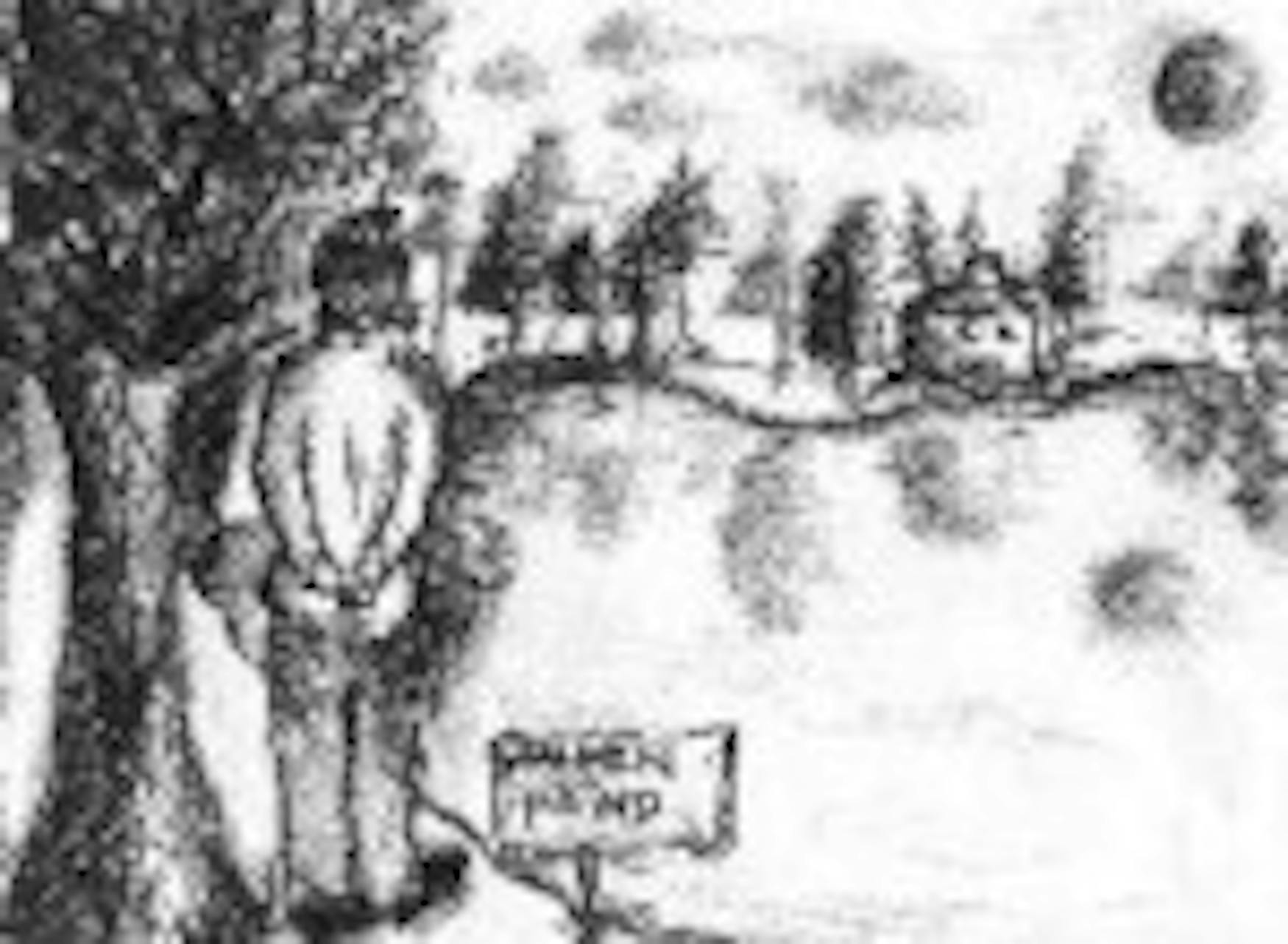Brandeis' Henry Thoreau
Brian Donahue combines history with hands on experience
It's safe to say that Prof. Brian Donahue (AMST) is the only member of the University faculty who owns a llama. Donahue, who lives in a Weston farmhouse with his wife, kids and a number of other families and various livestock, is also the professor of this semester's "Food and Farming in America" class, and the author of two books. In more ways than one, Donahue has the affect of a modern day Henry David Thoreau. Not only is Donahue a man of the earth, with a beard and a scowl-Donahue says his young daughter is teaching him how to smile- he also carries a striking resemblance to the late transcendentalist.
The true likeness, however, can be seen in Donahue's books. Both his first book, Reclaiming the Commons: Community Farms and Forests in a New England Town, published in 2001, and The Great Meadow: Farmers and the Land in Colonial Concord, written in 2004, focus on two topics Thoreau wrote about passionately: Concord, Mass. and the environment.
The Great Meadow, which explicitly discusses Thoreau's hometown, won awards for environmental history, agricultural history and New England history. And though he says he is happy to receive recognition for his work, he still has a sense of humor about it.
"[The awards don't] mean that you can necessarily read [The Great Meadow]," he says. "It's very dense. It gives a very detailed history of the way these families lived in Concord, generation after generation. Parts are quite dry, other parts are reasonable."
Although he plays humble when talking about his work, Donahue admits his pleasure with the finished product.
"It's very satisfying," he says about holding his own published work in his hands. "I cannot recollect writing it, its astonishing to me. I think a lot of people who wrote books feel that way. They read this thing and go, 'who did this?' Somebody said that that's because when we write stuff, it's not just coming out of our own heads: We're channeling a lot of collective knowledge in how to write things and how to structure arguments, so it sounds a lot smarter than the person who wrote it is."
Donahue's life in academia had its foundation in both a Brandeis education and true experiential learning. Donahue came to campus in 1973 as an undergraduate. Just two years later, he took a five-year hiatus from college. During that period, Donahue helped start a nonprofit corporation called Land's Sake, a community farming project "dedicated to responsible stewardship of suburban farmland and forests," according to its Web site. It was with this love of farming and community further implanted in his mind that Donahue returned to Brandeis in 1980 to finish both his undergraduate and graduate degrees.
He may have been back in the academic world, but Donahue maintained his outdoorsman persona. In addition to successfully fighting to receive physical education credit for chopping wood, Donahue farmed in Weston regularly from 1980 to 1992.
While working toward his doctorate, Donahue moved to Kansas to work at the Land Institute, another nonprofit whose goal is aiming "to develop an agricultural system with the ecological stability of the prairie and a grain yield comparable to that from annual crops," according to the Land's Sake web site.
It was in Kansas that Donahue completed his doctorate from Brandeis in 1995, and learned that a position in the American Studies department had opened at the junior level. He applied for the job and has been a professor here since 1997.
Experience in the field has made Donahue an advocate of experiential learning, and has affected the courses he teaches at Brandeis. Most of his classes cover environmental issues, environmental history and sustainable farming and forest, and include substantial time out of the classroom. Every other week, in classes such as "Food and Farming" and last year's "History of the Forest," Donahue's class spends three hours at his home chopping wood or learning the basics of sustainable farming. Donahue is working with colleagues, including Prof. Dan Perlman (BIOL), to create a program to better integrate work in the field and classroom.
Donahue says he hopes a group of students will take a variety of classes in biology, farming and environmental history at the same time, in an effort for interdisciplinary learning.
In The Great Meadow, Donahue explains that by farming for around 20 years, he improved his ability to analyze the history of agriculture in this area, which is why he wants to make sure his students can have similar experiences.
"I think [this] kind of learning, at least for certain subjects, is incredibly valuable," he says. "You learn things that you just can't learn from reading about them. You learn them through your body. So, I'm kind of doing that."
So where do the fierce llamas come into play? For the past 20 years, Donahue and his wife Faith have owned sheep. Many of them would meet their untimely demise, however, at the teeth of coyotes. Donahue says llamas have a reputation for protecting lambs, so he bought one to protect his assets. When lambs kept disappearing despite the intimidating llamas, he began putting the lambs inside at night.
"So basically, the bottom line is that this year, we kept one llama and we kept three lambs which we only use to keep the llama company," he explains. "So instead of having a meat flock, we have four pets for the kids."
The livestock are good for something else to, doing outdoor chores that even a nature enthusiast dislikes.
"They go around the house mowing the lawn," Donahue says. "Which is great because now I don't have to do it.



Please note All comments are eligible for publication in The Justice.